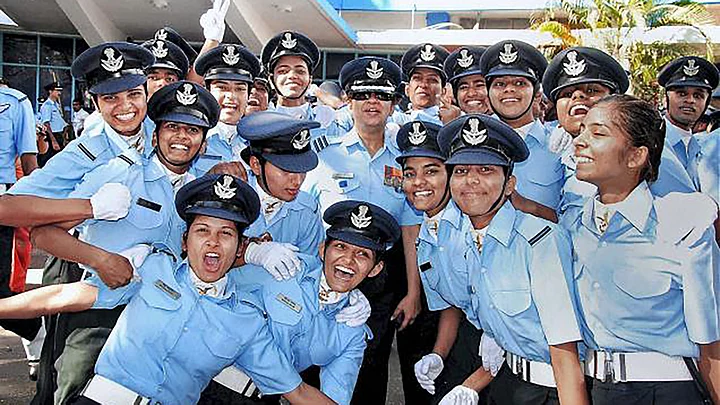The nation raises a toast every time women march in full military regalia. Empowerment, equality, equal opportunity et al are words often used. Office holders in the higher echelons of governance speak of ‘Nari Shakti’ and the media laps it up.
But irony is at play, behind the buzzwords. In reality, there is much reluctance within the defence services to embrace women.
Nari Shakti, as also not fully known to the political executive, has come to stay not because of any open arms policy of the military or the government, but due to directions of our Constitutional Courts, especially the Delhi High Court.
While women were earlier allowed to enter as Short Service Commissioned Officers, it was a decision by the Delhi High Court which opened the doors for permanent commission.
If the military had its way, most women officers would have been without a job and without pension after stints ranging between 5 to 14 years with no post-job protection and at an age in life when the need for support, familial and otherwise, is at its peak.
Need a Workable Resolution
There is still litigation pending in the Supreme Court on the subject since the defence services, specifically the Army and the Navy, have been resisting the diktat of the high courts in this regard.
The Air Force has shown more grace. While the deployment as frontline troops may be a debatable issue, the military must realise that women are here to stay and should work out a workable resolution rather than mechanically challenging all verdicts rendered in favour of women officers by courts.
Also read:
Indian Air Force Plans to Induct Women in Fighter Stream
Delhi Hight Court Allows Permanent Commission For Women in Navy
Navy, MoD Move SC Against Permanent Commission for Women
Avoid Decisions Based on Administrative Egotism
The defence minister, one of our best and most sensitised and practical in the recent past, and our service chiefs must also ensure that appeals are not filed by default out of administrative egotism against verdicts favouring women officers.
They must not fall into the fear psychosis generated by the system stating how there would be cadre mismanagement and other problems if more women are inducted or if women are allowed to command troops in battle.
Of course, due study must be conducted before any change of policy but such studies and decisions must not be left to the military alone and the study-groups should have adequate representation of serving and retired women officers and other stakeholders.
The military may have very valid objections on certain issues but the said objections must not be imposed in a ham-handed manner but must be deliberated upon in a participative way.
We have come a long way, with the present Prime Minister definitely inclined towards more representation of women in the military and the right noises from military chiefs. But there is a lot that needs to be done, and most of it is in the attitude department.
As a member of a committee of experts constituted by the defence minister examining service and pensionary issues and litigation, which recently submitted its report, I and other members strongly raised an objection against the regressive policy of the Coast Guard. The latter sought an undertaking from women joining the force that they shall not get pregnant in the first three years of service and that they shall not conceive more than twice during the duration of their service.
The defence services and the ministry of defence need to learn from the ministry of home affairs and the Central Armed Police Forces where 33 percent reservation for women has been announced in the Constabulary and where women have been performing their duties impeccably for many years.
It would be incorrect to say that there have not been problems but society and the system self-adjust with solutions and resolutions in due course.
The Home Minister has put his words into action, and with an iron-fist, has ensured equal opportunities for both genders in Khaki.
And that is why I say, Nari Shakti exists not in marching contingents, but in our minds.
(Major Navdeep Singh is a Punjab & Haryana High Court lawyer, an author and Member of the International Society for Military Law and the Law of War at Brussels.)
(At The Quint, we question everything. Play an active role in shaping our journalism by becoming a member today.)
